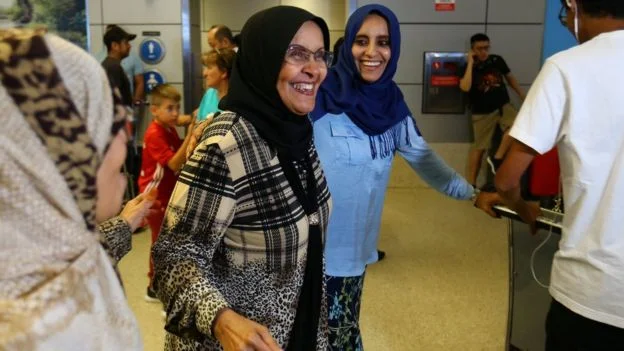The phone call came in the middle of the night. It was my mother, frantic but trying to inject calmness into her voice.
There were riots in Jakarta, she said. The supermarket down our road had been set on fire, and people were out on the streets looting stores and ransacking homes.
It was May 1998. And Indonesia - my childhood home - was at war with itself.
It wasn't the only one.
Thailand, the Philippines, South Korea, Hong Kong, Malaysia - even Japan - were all affected by the Asian financial crisis.
Eroding wealth
Almost overnight, the East Asian economic miracle was declared no more.
Growth rates contracted. Millions of families like mine saw their wealth erode over the course of a few months.
The middle class in many of these nations was decimated as housewives sold their jewellery to keep their families afloat, and mothers stormed the streets because they couldn't afford imported formula for their children.
A number of countries, including Indonesia, had to ask the International Monetary Fund and the World Bank for help.
'Meant to be invincible'
My sister and I were at university in the UK when the financial crisis struck in 1997.
At the time we felt the impact keenly. Our overseas university fees, which were paid in British pounds, became vastly more expensive to a father who, until that point. had exemplified the middle-class Indonesian success story.
"No one could have seen it coming," my father tells me today as he looks back. "We were on the verge of becoming one of Asia's tiger economies. We were meant to be invincible."
But if there was thing the crisis proved, it was that Asia's Tigers were extremely vulnerable.
"It was the worst time in my career," Soedjradjad Djiwandono, Indonesia's central bank governor at the time told me.
"We almost didn't sleep for months because every day you have to deal with it. We thought we could stabilise the Indonesian rupiah. We intervened in the market, but the rupiah kept depreciating."
What Mr Djiwandono is talking about is the massive currency devaluations that happened across the region, starting with the Thai baht, and rippling across South East Asia.
There were many reasons for the crisis. But the consensus is that it was predominantly a combination of asset bubbles, high current account deficits and too much foreign-denominated debt in the banking system.
Currencies that were artificially pegged to the US dollar at a fixed and unrealistic exchange rate, and a lack of financial transparency, made these countries vulnerable to the crisis.
Lessons learned?
Today, though, most of these countries are among Asia's strongest economies. So what did they do right? And what lessons were learned to ensure that something like that never happens again?
First, getting rid of fixed exchange rates was vital. Thailand, South Korea and Indonesia all saw their semi or fixed exchange rates challenged during the crisis by currency speculators.
After the crisis these countries adopted a free-floating currency which allowed market forces to determine the value of the exchange rate, thereby taking out the incentive for speculators to step in.
Second, countries also started cleaning up banking systems. Pre-crisis, 30% of bank loans made in Indonesia were not re-payed. Nowadays it's closer to 5%.
Banking systems exposed to a high level of corporate debt in foreign currencies are vulnerable to higher and more expensive payments when those currencies fall. And sometimes when businesses can't pay back their loans - as happened during the crisis - the whole banking system collapses.
Finally, making the political and economic environment more transparent was important. Many of the countries affected had political and financial systems that were opaque and prone to crony-capitalism.
While there have been improvements - in the case of Indonesia a system of government changed from dictatorship to a democracy - there are still inherent issues within many of the countries that allow the elite to govern the way business is done.
Intolerance
It was the 1997-98 financial crisis that made me want to become a journalist - in particular a business reporter. Why had nobody warned what might happen?
The region has come a long way since then, and most economists agree that countries here are all in a much better shape to allow something like that from happening again,
Thailand is now in the grip of a military-led government. Malaysia is suffering from its own corruption scandal stemming from the Prime Minister down.
And Indonesia, where my mum called me from that night, is beset with religious intolerance issues.
Together these countries make up at least half of Asia's GDP growth. The warning signs are clear to see.
BBC NEWS





















